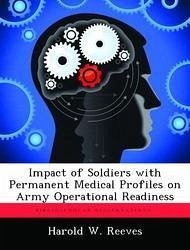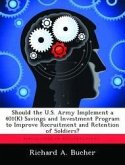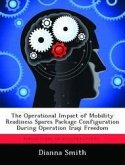Individual readiness and deployability have always been important factors in determining unit and overall Army readiness. As the Army downsizes, and the Operational Tempo and Personnel Tempo remain high or increases, individual readiness and deployability may become more critical to Army readiness. Maintaining a healthy and deployable force are critical components of ensuring a combat ready force. Consequently, all soldiers must be ready to deploy quickly. If the Army has a significant pool of soldiers who are medically nondeployable, it will not have the resources to continue to support operational missions. This study evaluated the effects on Army readiness of active component personnel with permanent nondeployable medical profiles (e.g., diabetes and cancer). The study assessed the efficacy of current Army policies. It also evaluated the readiness and medical reporting systems to determine the true impact of permanent nondeployable soldiers on readiness. This study concluded that profiles do not have a notable impact on Army readiness. However, the study found that the Army's readiness and medical reporting systems were unreliable and they may significantly obscure the magnitude of the nondeployable problem. In addition, Department of Defense and the Army policies do not efficiently promote a healthy and deployable force.
Hinweis: Dieser Artikel kann nur an eine deutsche Lieferadresse ausgeliefert werden.
Hinweis: Dieser Artikel kann nur an eine deutsche Lieferadresse ausgeliefert werden.








